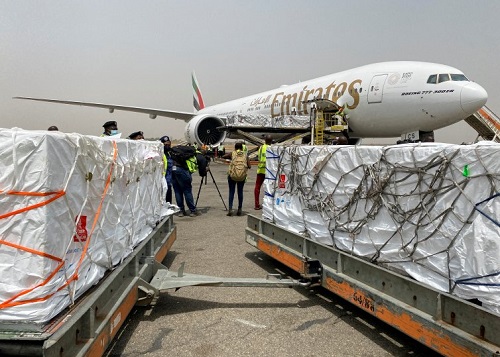About 2.3 million Nigerians have registered on the online registration portal for COVID-19 vaccinations, Nigeria’s primary healthcare agency boss said on Wednesday.
“In less than 24 hours, 2.3 million Nigerians have registered to take the vaccines and the numbers keep increasing,” Faisal Shuaib said during a Channels TV interview.
Osindeinde Ademilayo Abodede, a healthcare worker, was the first to register for the vaccine, the National Primary Health Care Development Agency (NPHCDA) said in a Tweet on Monday. Her appointment was scheduled for March 12 in Abuja.
Nigeria had launched the website a day before the first batch of COVID-19 vaccines arrived in the country.
The agency launched a self-registration portal online to try to ease the roll-out. Healthcare workers will be the first to be inoculated later this week.
In addition to healthcare workers, the NPHCDA has stated that it will place a high priority on other “frontline workers” such as members of the military, police, Nigerians who are working at border posts, oil and gas workers, and “strategic leaders.”
NPHCDA said that it is taking a multifaceted approach to the vaccine rollout, which would include a “traditional campaign,” and house-to-house electronic registration in addition to the online portal.
But the country faces immense security and logistics challenges.
“As the vaccines arrive in batches due to limited supply we will inform Nigerians about who and where to receive the vaccine,” Shuaib told reporters Tuesday.
“States without a functional airport will have their vaccines transported by road using vans with fitted cold cabins, from the nearest airport,” Shuaib said.
Nigeria’s secretary-general Boss Mustapha urged traditional rulers, religious leaders, civil society groups, and the media to spread the message that vaccinations were needed, adding: “This is a fight for everyone.”
COVAX is expected to ship 16 million doses of vaccine to Nigeria over the next few months, as led by Gavi, an international vaccine alliance, and the World Health Organization (WHO), with UNICEF as an implementing partner.



